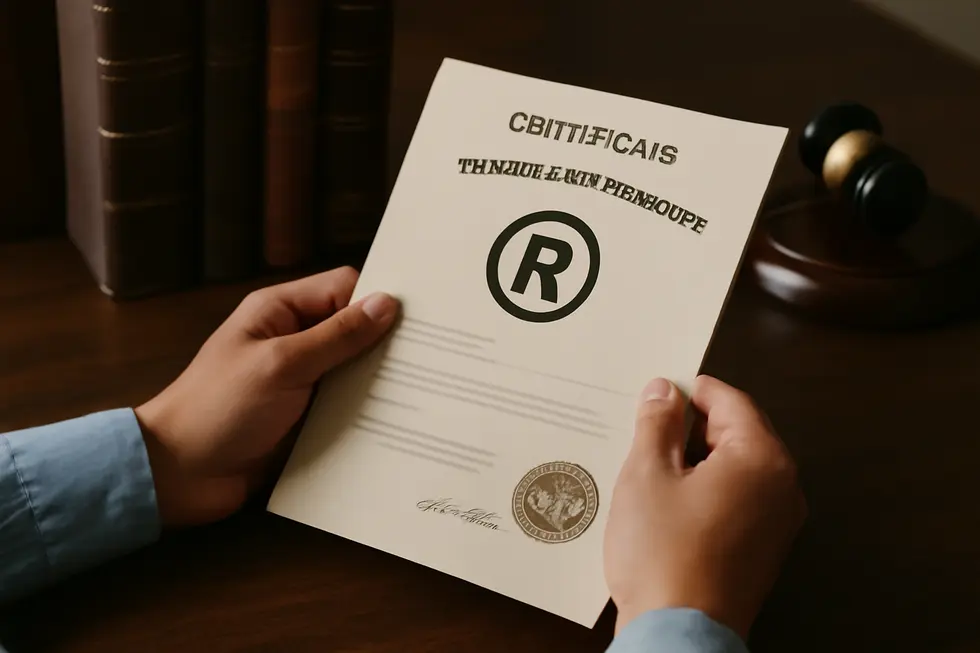Introduction
Choosing a business name is one of the first and most critical decisions for any business owner. A name not only defines your brand identity but also serves as a competitive asset in the marketplace. However, a common question arises: Can you have the same business name as someone else? The answer depends on various legal frameworks and practical considerations that govern naming rights across state and federal levels. This discussion unpacks how state-level regulations influence business name uniqueness, explores federal trademark protections that secure nationwide rights, and highlights crucial practical implications for business owners navigating name conflicts. Understanding these layers will empower entrepreneurs to make informed decisions that protect their brand and reduce costly disputes.
Tables of Contents
Chapter 1: State-Level Regulations on Can You Have the Same Business Name as Someone Else
- Understanding State Business Name Requirements: Uniqueness, Registration, and Legal Boundaries
- Navigating the Complex Relationship Between State Business Name Rules and Federal Trademark Protections
- Navigating State Business Name Rules and DBA Registrations: Legal Boundaries and Limitations
Chapter 2: Federal Trademark Protections Related to Can You Have the Same Business Name as Someone Else
- How Federal Trademark Registration Establishes Nationwide Exclusive Rights and Legal Presumptions Over Business Names
- Understanding Distinctiveness and Eligibility for Federal Trademark Protection in Business Naming
- Navigating Differences Between Federal Trademark Rights, State Business Name Registrations, and Common Law Protections
Chapter 3: Practical Considerations and Implications of Can You Have the Same Business Name as Someone Else
- Navigating Trademark and Legal Boundaries: Understanding Restrictions on Using Identical Business Names
- Navigating State and Common Law Obstacles When Sharing a Business Name
- Navigating Branding, Legal Risks, and Strategic Choices When Sharing a Business Name
Chapter 1: State-Level Regulations on Can You Have the Same Business Name as Someone Else

1. Understanding State Business Name Requirements: Uniqueness, Registration, and Legal Boundaries
State-level regulations establish clear guidelines to ensure that business names remain unique and distinguishable within each state’s borders. This requirement aims to prevent consumer confusion and protect established businesses from diluted brand recognition. Typically, when you attempt to register a business name, the state’s Secretary of State office mandates that your chosen name cannot be identical or overly similar to any other name already registered for a business entity in that jurisdiction. This policy underscores a foundational principle: no two entities within the same state should bear the same official business name if it risks misleading customers or creating ambiguity.
The process begins with a name availability check. Most states offer online databases where prospective business owners can search to verify if their desired name is free or if it closely resembles an existing one. Conducting this search early minimizes the risk of rejection and saves time. In many states, you can also reserve a business name—a temporary hold that guarantees no other party can register that name for a set period, typically between 30 and 120 days—as you prepare formal incorporation or formation documents. Though optional, reservation offers a strategic advantage for businesses finalizing branding and legal paperwork.
Once confirmed, registering the business name involves filing formation documents, such as Articles of Incorporation for corporations or Articles of Organization for LLCs. These filings officially record the business name with the state, legally tying it to your enterprise. Importantly, states often impose additional naming rules: the name must be clearly distinguishable, avoid restricted or regulated terms (such as “bank” or “insurance” without proper approval), and usually must include a suffix indicating the business structure, like “LLC” or “Inc.” Moreover, some states require periodic renewal for certain types of names, especially fictitious business names or DBAs (Doing Business As), to keep records current and maintain clarity.
When examining if you can use the same business name as another entity, the key distinction lies in geography and market overlap. Within the same state, registering an identical or confusingly similar name is generally prohibited if both businesses operate in similar industries or customer bases. However, across different states, businesses can sometimes share names if they do not infringe on existing trademarks or create market confusion. This is especially true when neither holds a federal trademark claiming nationwide exclusivity. Without federal protection, state registries do not coordinate on a national scale, which creates potential for identical names to coexist in separate regions.
It is also vital to note that operating under a different name from your legal registered name—for instance, a DBA—might require separate state or local registration. This layered approach ensures transparency and protects consumers. For brand consistency and stronger recognition, businesses are wise to align their legal registration, trade names, and even online presences, including domain and social media handles.
While state-level registration solidifies your name’s uniqueness within that state, it does not grant nationwide exclusivity or prevent others in different states or industries from using the same or similar names. For broader protection, registering a federal trademark through the United States Patent and Trademark Office is necessary. This offers exclusive rights on a national scale for specific goods or services, allowing businesses to enforce their brand identity beyond local borders.
In practice, understanding these state-level name registration rules is crucial before filing your documents, saving frustration and reinforcing your business’s legal foundation. For details on checking name availability and navigating state requirements, consult your Secretary of State’s business registry. Additionally, to explore the benefits and procedures of federal trademark registration, resources like Trademark Registration Guidance provide valuable insights.
For authoritative state-specific information, your Secretary of State’s business name registry remains the primary resource, providing updated guidelines and access to online search tools to secure a unique and compliant business identity.
[1] State Secretary of State Business Name Registries
2. Navigating the Complex Relationship Between State Business Name Rules and Federal Trademark Protections
Navigating the Complex Relationship Between State Business Name Rules and Federal Trademark Protections
When deciding on a business name, understanding how state-level registration interacts with federal trademark law is crucial for securing protections and avoiding legal conflicts. Each state independently governs the registration of business names, generally requiring that the name you choose be unique and distinguishable from names already registered within that state. This process is managed by the Secretary of State or a similar authority, which screens new registrations to prevent identical or confusingly similar names from coexisting within the state’s borders. For example, if you wanted to register an LLC, your business name must not only be unique but also reflect the correct legal suffix (e.g., “LLC” or “Inc.”) to comply with state naming conventions. This state-level registration safeguards your business identity only within that particular jurisdiction, allowing customers and regulators to clearly distinguish your business from others locally.
However, this uniqueness applies strictly at the state level and does not extend beyond it. State business name registration does not grant you exclusive rights outside that state or across industries. Another business using the same or a similar name in a different state can often register it without issue, as there is no nationwide state-level coordination or authority controlling business name registrations. This jurisdictional limitation means your business name can legally exist in multiple states, complicating brand recognition and legal rights if you plan to expand beyond your original market.
This is where federal trademark registration plays a pivotal role. By registering your business name as a trademark with the United States Patent and Trademark Office (USPTO), you acquire exclusive rights to use that name nationwide for the particular goods and services your trademark covers. Federal trademarks prevent other businesses from using confusingly similar names in related fields anywhere in the U.S., superseding state registration rights. For instance, even if a corporation in another state has registered your business name locally with that state’s Secretary of State, your federally registered trademark could block them from using that name if it infringes on your trademark rights.
The interplay between state business name registration and federal trademark protection demands careful attention. Securing approval for your business name at the state level is only one step. To avoid future disputes, you should also search the USPTO’s trademark database to ensure no federally registered trademarks conflict with your desired name. Relying solely on state registration can expose your business to infringement claims if another company holds a conflicting federal trademark, even within your own state.
In addition, registering a fictitious name or doing business as (DBA) locally does not grant trademark rights, only allowing you to operate under that name within your jurisdiction. For businesses aiming for broad brand protection—particularly those operating online or planning interstate activities—obtaining federal trademark registration is key. It not only strengthens your legal position but also provides mechanisms to enforce your brand rights nationwide.
Ultimately, a comprehensive approach that includes both state business name registration and federal trademark registration offers a layered defense for your business identity. This dual strategy reduces consumer confusion, helps avoid costly legal battles, and supports brand integrity across state lines. For those interested in the precise requirements and benefits of trademarking your business name, further guidance is available through expert resources focused on trademark protections and registrations.
More detailed information on trademarks and registering your business name can be found at Trademark guidance for business names.
3. Navigating State Business Name Rules and DBA Registrations: Legal Boundaries and Limitations
When you register a business entity such as an LLC or corporation, the state ensures your chosen business name is unique within its jurisdiction. This prevents others from registering the identical name and aims to avoid consumer confusion within the state. State registration systems rigorously check for exact or deceptively similar names, effectively reserving that business name for your legal entity within that state. However, this protection is confined to state borders—it does not guarantee exclusivity beyond your state.
An important nuance arises with the use of Doing Business As (DBA) names. DBAs allow sole proprietors, partnerships, or even existing corporations and LLCs to operate under a different trade name without creating a separate legal entity. While DBAs provide flexibility in branding, a DBA registration alone does not grant exclusivity over that name. Multiple businesses may register or use the same DBA name within a state unless trademark protections exist. The requirements and processes for DBA registration vary by state, and sometimes by local counties, reflecting a patchwork system without standardized exclusivity guarantees.
The distinctions among state business name registration, DBAs, and federal trademarks reveal critical legal differences. State-level registration creates an official business entity name preventing identical names from registering locally. However, DBAs function primarily as formal notices that a business is operating under a different name, with no inherent protection against duplication by others. Federal trademark registrations, conversely, provide exclusive rights to use a name nationwide in association with specific goods or services, offering stronger legal mechanisms to challenge infringement.
To illustrate, consider Wisconsin: once an LLC or corporation name is registered with the Department of Financial Institutions, no other business can claim that exact name in the state. Yet, if a business only registers a DBA without pursuing federal trademark protection, other businesses might still freely use that DBA elsewhere, limiting its protective reach.
Thus, while state regulations on business name registration prevent duplicate official entity names within one state, DBAs offer less exclusivity and primarily serve as operational identities without legal monopoly. For entrepreneurs seeking robust protection, especially with aspirations beyond state boundaries, registering a federal trademark is essential to secure exclusive rights nationwide and to enforce them legally.
This layered system balances the need to avoid confusion locally by enforcing unique business entity names while allowing some flexibility through DBAs. The full scope of protection, however, hinges on federally recognized trademarks, which offer enforceable exclusivity well beyond state lines. To learn more about protecting your business name through trademark registration, you can explore detailed resources on how trademarks benefit your business.
Chapter 2: Federal Trademark Protections Related to Can You Have the Same Business Name as Someone Else

1. How Federal Trademark Registration Establishes Nationwide Exclusive Rights and Legal Presumptions Over Business Names
Navigating Federal Trademark Protections for Nationwide Business Name Exclusivity
Federal trademark registration is the cornerstone for securing exclusive nationwide rights to a business name in connection with specific goods or services. Unlike state-level business name registrations, which only prevent identical entity names within that state, a federal trademark grants the owner a legal presumption of exclusive ownership and priority nationwide. This means that once a business name is federally registered as a trademark, the registrant can block others from using the same or confusingly similar names anywhere in the United States for related products or services.
To qualify for federal trademark protection, a business name must meet several criteria. It needs to be distinctive rather than generic or merely descriptive and must be used in commerce connected to identifiable goods or services. The United States Patent and Trademark Office (USPTO) rigorously examines applications to ensure there is no likelihood of confusion with existing registered marks in the same industry categories. When a trademark is approved and registered, the owner gains the right to use the ® symbol, signaling the mark’s registered status and nationwide protection.
This protection carries significant legal weight under the Lanham Act—the federal statute governing trademarks. It allows trademark owners to enforce their rights by pursuing lawsuits against infringers, seeking injunctions to stop unauthorized use, demanding damages for harm caused, and pursuing other remedies. After five consecutive years of continuous use without challenge, registered trademarks may achieve incontestable status, which further strengthens their legal standing by limiting challenges based on prior rights or certain defenses.
However, federal registration does not automatically police infringement. The responsibility to monitor unauthorized use, investigate potential conflicts, and enforce trademark rights falls squarely on the trademark owner. Common enforcement actions include issuing cease-and-desist letters to deter infringing parties. Besides business names, federal trademarks also cover related branding elements like logos and slogans, expanding the scope of protection around a brand identity.
It is critical to understand that even if no federal trademark exists, common law trademark rights may offer limited geographic protection based on actual commercial use. Nevertheless, these rights do not grant the broad, nationwide exclusivity that federal registration provides. Moreover, federal registration preempts state registrations and common law rights within its scope, effectively making it the most powerful tool to prevent others from registering or using confusingly similar names nationwide.
| Protection Type | Geographic Scope | Legal Effect | Limits/Notes |
|—————————–|———————–|————————————————–|—————————————————–|
| State Business Name Registration | Within one state | Prevents identical LLC/corporation names there | Does not stop other entity types or out-of-state use |
| Federal Trademark Registration | Nationwide | Exclusive right to use mark on related goods/services; legal presumption of ownership; enforcement via Lanham Act lawsuits | Must meet USPTO criteria; owner must enforce rights actively |
In essence, once a federal trademark exists for a business name in a given class of goods or services, it legally excludes others from using the same or confusingly similar names anywhere in the country for related purposes—regardless of state business name registrations. This layered approach balances the need for clear, unmistakable branding with practical enforcement by rights holders.
For those considering how to protect a business name effectively and ensure exclusivity beyond state borders, federal trademark registration is essential. To learn more about whether you need trademark registration for your business, you can explore helpful resources about trademark essentials at do I need a trademark for my business?.
For additional detailed guidance on federal trademark rights, enforcement tools like cease-and-desist letters, and protections against counterfeit products, see the official USPTO guidelines linked here.
2. Understanding Distinctiveness and Eligibility for Federal Trademark Protection in Business Naming
Distinctiveness is the cornerstone of federal trademark protection, directly influencing whether a business name can be federally protected and how it affects the ability of others to use similar names. Unlike state-level business name registration, which primarily prevents identical or deceptively similar names within a state, federal trademark law delves deeper by assessing the uniqueness and source-identifying capacity of a name across the entire country. This heightened scrutiny ensures that a federally registered trademark serves as a reliable indicator of origin in commerce, reducing consumer confusion nationwide.
Federal trademark eligibility depends largely on how inherently distinctive a business name is. This distinctiveness exists on a spectrum. On one end are fanciful marks, which are completely invented terms like made-up words or creative combinations, and arbitrary marks, which use common words in an unrelated context. Both of these categories receive the strongest protection because they are highly unique and inherently identify the source of goods or services. For example, a random coined word for a product is far more likely to qualify for exclusive rights than a name that merely describes the product.
Moving closer to the middle of the spectrum, suggestive marks indirectly hint at or suggest qualities or characteristics of the product. These names require a consumer’s imagination to connect them to the product properties, such as a metaphor or an allusion. Suggestive marks do enjoy federal protection but typically not as strong as fanciful or arbitrary marks.
On the weaker end are descriptive marks—names that directly describe a product’s features, qualities, or characteristics. These are generally not registrable on the federal level unless they acquire secondary meaning, which means the public primarily associates that descriptive name with a particular source due to extensive and exclusive use over time. This acquisition process can be difficult and expensive but can eventually grant enforceable trademark rights.
At the bottom of the spectrum are generic names, which are the common terms used to identify a general type of product or service. These receive no trademark protection because allowing exclusivity would prevent others from describing their own products.
If a business name is federally registered as a trademark, the owner gains exclusive nationwide rights to use the name for the specified goods or services. This blocks competitors from registering or using confusingly similar names within the same industry class, even across state lines. Such protection significantly surpasses state business name registrations, which only secure uniqueness within one jurisdiction. Moreover, it empowers the trademark owner to enforce their rights through legal actions to stop infringing uses.
However, federal trademarks are limited in scope; protection applies only within the registered classes of goods or services and depends on the owner’s vigilance in enforcement. Additionally, common law trademark rights can arise from actual, continuous use of a business name without federal registration. These rights grant limited protection primarily in the geographic area where the name is recognized by customers due to established use, making territorial boundaries relevant.
In practical terms, this means that having the same business name as someone else is possible if the name is not federally registered in a way that causes confusion, is used in a different industry, or is geographically distant enough to avoid misleading consumers. Yet, if your intended name is too similar to a federally protected trademark within your market or industry, registration or use could lead to infringement claims.
Understanding this balance between distinctiveness, registration status, industry overlap, and geographic reach is crucial. For businesses seeking stronger and wider protection beyond state registration, applying for a federal trademark provides a clearer path to exclusive rights and legal enforcement. For further insights on how trademark distinctiveness affects business name protection, refer to the comprehensive overview at Trademark2Go.
External resources such as the Trademark2Go guide on distinctiveness and eligibility can provide additional clarity in navigating these complexities and help determine whether your business name can be protected federally or if it risks conflict with existing trademarks.
3. Navigating Differences Between Federal Trademark Rights, State Business Name Registrations, and Common Law Protections
Understanding the interplay between federal trademark protections, state business name registrations, and common law rights is essential when considering whether you can have the same business name as someone else. Each layer of protection operates with distinct scopes, requirements, and legal powers, shaping how business names coexist across jurisdictions and industries.
Federal trademark registration with the United States Patent and Trademark Office (USPTO) grants the registrant nationwide exclusive rights to use a specific business name or mark for particular goods or services. This registration establishes a legal presumption of ownership and publicly notifies others of the claim, providing stronger enforcement mechanisms including federal court litigation and customs enforcement to stop counterfeit goods. Such comprehensive protection helps prevent confusingly similar names from appearing in commerce anywhere in the United States within the same market category.
By contrast, state business name registrations are generally limited to ensuring that no two registered business entities—such as an LLC or corporation—share an identical or deceptively similar name within that specific state. This prevents duplication during entity formation but does not amount to trademark protection. A state’s secretary of state will typically reject identical names within its jurisdiction, but it cannot stop businesses in other states or unregistered businesses from using the same or similar names. Moreover, state registration focuses on the legal business entity name, not on the trademark or branding that consumers encounter.
Common law rights emerge organically through the actual use of a business name or mark in commerce without formal registration. These rights are limited geographically to where the name has recognition and use, mostly protecting against confusingly similar names in that local area. Although they provide some recourse through state courts, common law rights lack the legal presumptions and nationwide reach of federal registrations. They also require proving prior use, which can be challenging.
The protection distinctions can be summarized as follows: federal registration provides robust, nationwide protection with legal priority and public notice; state registration ensures exclusive use of a business entity name within one state but doesn’t create trademark rights; and common law rights offer localized, weaker protection based on actual usage without registration.
Because of this, it is possible for businesses with identical or similar names to exist simultaneously if they operate in different states or distinct industries where federal trademark rights do not overlap. However, a federal trademark holder can prevent others from using confusingly similar names across states within their registered market categories, effectively superseding state registrations and common law rights in many situations.
For businesses aiming to build a brand beyond state lines or secure stronger, nationwide exclusivity, pursuing federal trademark registration is the most effective strategy. Before applying, conducting a thorough trademark search is critical to avoid conflicts and application refusal due to likely confusion with existing marks.
State-level name registrations remain useful for establishing and reserving a business entity’s legal name locally, especially for small or single-state businesses. Common law rights may offer some defense in local disputes but are insufficient for protecting broader brand identity.
This layered approach balances the need for localized business name uniqueness with broader brand protection. To explore more about when a trademark is necessary and how it benefits your business, visit trademark2go.com/do-i-need-a-trademark-for-my-business.
For further detailed guidance on the distinctions and interplay between these protections, refer to USPTO resources, which clarify the processes and benefits of federal trademark registration versus state and common law rights.
Chapter 3: Practical Considerations and Implications of Can You Have the Same Business Name as Someone Else

1. Navigating Trademark and Legal Boundaries: Understanding Restrictions on Using Identical Business Names
When choosing a business name, understanding the trademark and legal framework is crucial to avoid potential disputes. While it might seem straightforward, using the same or a confusingly similar business name as another entity involves navigating a complex intersection of state registration requirements and trademark law protections.
At the state level, registering your company’s legal name—whether as an LLC, corporation, or other entity—usually requires that the name be unique within that jurisdiction. Most states reject name registrations that are identical or deceptively similar to those already on record, aiming to prevent administrative confusion and protect consumers. However, state registration only grants you the right to operate under that name within that state; it does not provide exclusive rights beyond the state borders or protect against trademark infringement claims.
Trademark law broadens this protection by focusing on the likelihood of confusion among consumers in the marketplace. Federal trademark registration grants exclusive rights to use the registered name nationwide for particular categories of goods or services. This means even if your business is located in a different state, you could face legal challenges if your name conflicts with an existing federally registered trademark operating in a similar industry. Furthermore, if your business name closely resembles another’s trademark in a way that might mislead or confuse customers, you risk receiving cease-and-desist notices or costly litigation, regardless of whether your state has approved your name.
It’s also important to note that trademark rights can exist without federal registration. Common law trademarks arise through actual commercial use and provide limited protection within specific geographic areas where the mark has gained recognition. These rights are more difficult to detect during name selection since unregistered marks do not appear in trademark databases, but they still carry enforceability against infringers within their area of influence. However, federal registration can trump common law rights by extending protections nationwide.
Practically speaking, before selecting a business name, conducting comprehensive searches is essential. This includes checking your state’s business entity databases to confirm local availability and searching the United States Patent and Trademark Office (USPTO) database to identify federal trademarks that might conflict with your proposed name. Avoiding names that resemble well-known or federally registered trademarks in your industry reduces the risk of rejection or legal disputes.
Registering your business name with the state is a critical first step, but securing a federal trademark amplifies your legal protection by enabling you to enforce exclusive rights and prevent others from using confusingly similar names across the country. This layered approach safeguards brand identity and helps maintain your competitive edge.
In summary, using the same business name as someone else without infringing on trademark rights or state naming rules is challenging. State registration ensures local uniqueness but not national exclusivity, while trademark law—both common law and federal—determines broader legal rights based on consumer confusion risks and marketplace presence. Careful due diligence in the naming process and consideration of federal trademark registration are vital to navigating these restrictions successfully.
For a deeper understanding of trademark requirements and how they interact with business naming, exploring resources like the United States Patent and Trademark Office (USPTO) website can provide valuable guidance. Additionally, consulting specialized trademark services can help clarify whether trademark registration is beneficial for your particular business goals, as discussed in detail on Trademark2Go’s guide on needing a trademark.
2. Navigating State and Common Law Obstacles When Sharing a Business Name
When considering whether you can have the same business name as someone else, understanding the interaction between state regulations and common law rights is essential. States enforce strict rules to ensure each registered business name within their borders is unique and not confusingly similar to existing ones. This framework primarily aims to protect consumers and support clear identification in the marketplace. The Secretary of State or equivalent office typically screens applications and rejects those attempting to register names already in use or deceptively close. This means that within a given state, using an identical business name to an existing registered entity is practically impossible without running afoul of naming rules.
While state registration guarantees uniqueness locally, it does not extend protection across state lines or industries. Here, common law trademark rights come into play, arising automatically from actual commercial use of a name without formal registration. These rights provide limited but meaningful safeguards, confining exclusive use to the geographic area where consumers recognize the brand. A business with strong local presence can prevent others from adopting confusingly similar names nearby—even if those businesses have registered their names at the state level elsewhere. However, common law protection relies heavily on the owner’s vigilance, since no governmental body enforces it automatically.
At the federal level, trademark registration significantly enhances name protection by granting exclusive nationwide rights to use the mark for specific goods or services categories. The United States Patent and Trademark Office (USPTO) maintains a database searchable by prospective applicants. If your desired business name or a confusingly similar mark is federally registered, your application to register the same or similar trademark will likely be denied. This federal coverage helps prevent overlap across states and industries and offers greater legal clout if infringement occurs.
The practical implications of these layered protections are considerable. Even inadvertent use of a name resembling an existing common law or federally registered mark can trigger infringement claims. Trademark law does not require intent for violations; if consumers are likely to be confused, legal consequences such as cease-and-desist orders, costly lawsuits, financial damages, and forced rebranding can ensue. Thus, reliance solely on state registration for a business name may leave you exposed to legal challenges that disrupt your operations and brand reputation.
Before finalizing your business name, it’s prudent to conduct comprehensive searches across state registries and federal trademark databases. Consulting a trademark attorney can help you navigate these complex waters, assessing potential conflicts and advising on necessary steps to secure and enforce your brand name. For deeper insights into trademark protection and whether you need a trademark for your business name, exploring dedicated resources on trademark registration can be invaluable.
In summary, the balance between state-level name uniqueness mandates and common law plus federal trademark protections shapes the legal landscape for sharing business names. While exact duplicates are disallowed within states, overlaps across geography or industry may exist but carry legal risks. Understanding and respecting these regulatory and common law boundaries is critical to avoid costly disputes and to build a defensible brand identity.
For further guidance on trademark considerations for your business name, visit do I need a trademark for my business.
3. Navigating Branding, Legal Risks, and Strategic Choices When Sharing a Business Name
Choosing a business name is a foundational step that shapes your brand’s identity and public perception. However, using a name identical or confusingly similar to another business in your industry or geographic area is fraught with potential pitfalls. From legal challenges to marketing setbacks, the repercussions of overlapping business names underscore the importance of a thoughtful strategy.
Legally, trademarks serve as a primary means of protecting a business’s name and reputation. Distinctive names used in commerce may be federally registered to secure exclusive rights nationwide, preventing others in related markets from using confusingly similar marks. Even without federal registration, common law trademark rights can arise from prior use in a particular area, granting limited local protection. State business registries also play a gatekeeping role by typically rejecting new registrations that duplicate or closely resemble existing names in their jurisdiction. These layers work collectively to minimize consumer confusion and preserve the goodwill built by established businesses.
Despite these protections, violations can occur, sometimes unintentionally, leading to serious consequences. Trademark infringement lawsuits, cease-and-desist demands, and forced rebranding impose significant financial and operational burdens. Such conflicts also damage a company’s reputation and can erode customer trust. From a branding perspective, a name must be unique, memorable, and clearly connected to the company’s values and offerings. Overlapping names risk confusing customers or diluting brand strength, undermining marketing efforts across all channels—from web presence to social media engagement.
Strategically, businesses should prioritize comprehensive name availability searches before committing to registration or trademark application. This includes careful examination of federal trademark databases and state business directories to uncover potential conflicts early. Selecting a scalable and flexible name that accommodates future growth can avoid the costly disruption of rebranding. Crafting distinctive names through acronyms or novel word combinations can enhance uniqueness and reduce infringement risks.
Should conflicts arise after establishment, prompt consultation with trademark legal experts is vital to assess risks and consider remedies. Options might include negotiating coexistence agreements with the other party or planning a rebrand if conflicts prove insurmountable. Throughout, maintaining brand consistency is key to building recognition and consumer loyalty.
The intersection of legal protection, branding imperatives, and strategic foresight ensures your business name supports—not hinders—long-term success. Avoiding shared or confusingly similar names isn’t only a legal safeguard but a crucial component of crafting a strong, trusted brand identity. For those unsure about the need to protect a business name formally, exploring more detailed advice on trademark registration can guide you through proactive measures to safeguard your brand’s unique value. For practical steps on legal risks and brand development, resources such as Trademark2Go’s guidance on trademark necessity offer valuable insights.
Final thoughts
A business name is more than just a label—it is an integral component of your identity and competitive edge. State regulations make sure that within each state, business names are unique enough to prevent confusion, but these protections are geographically limited. Federal trademark law offers broader rights, protecting your business name nationwide within specific categories, yet requires proper registration and enforcement to be effective. Understanding the interplay between state rules and federal protections can help business owners strategically choose and secure their brand names, reducing legal risks and marketplace confusion. Ultimately, proactive research, registration, and possible trademark filings are essential steps to ensure your business name remains a valuable and protected asset.
Your IP is the foundation of your success – let’s protect it together before it’s too late. We can’t wait to help you turn your ideas into legally secured assets.
About us
undefined


